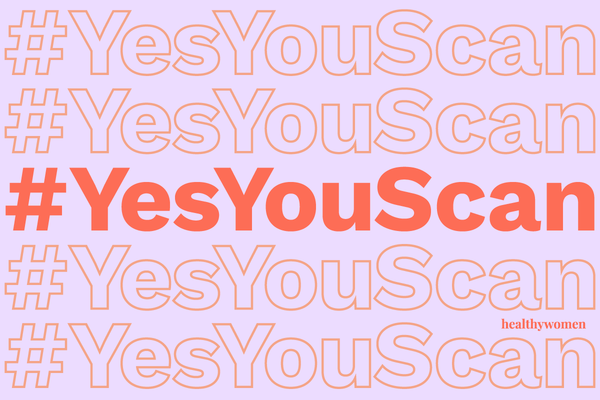October 20, 2024, is World Osteoporosis Day.
As the old saying goes, sticks and stones may break your bones but neglecting your bone health will hurt you.
If it’s been awhile since you thought about your bones, we get it. Bone health is underrated. But it’s also really important. Let’s put it this way: You can’t do much without a skeleton.
It’s especially important for women and people assigned female at birth to be proactive about bone health because osteoporosis, a disease that makes bones weak and brittle, affects 10 million people in the U.S. and 8 out of 10 of those are women.
The physical consequences of osteoporosis can be life-changing. A simple stretch, bend — even a cough — can result in a fracture or broken bone if you have osteoporosis. In fact, about half of all women over age 50 will break a bone at some point because of the disease.
Beyond breaks, osteoporosis can also have a significant impact on your mental health.
Osteoporosis and depression
In addition to physical problems, osteoporosis has been linked to serious mental health issues. Research shows people with osteoporosis are more likely to have depression compared to people who don’t have osteoporosis. In one 2022 study of mostly women, a majority of participants with osteoporosis had depression (86.9%) compared to 15.4% of the group who didn’t have osteoporosis.
Deborah T. Gold, Ph.D., professor emerita in psychiatry and behavioral sciences at Duke University Medical Center, has studied the connection between osteoporosis and depression for years. “When I started doing the research, we found that people [with osteoporosis] who got a fracture were limited in what they could do. It made them feel old — and it hurt — and that led to depression,” Gold said. “I do think in most cases depression is a result of the disease.”
Gold recalled a time when a study participant started sobbing as she filled out her osteoporosis questionnaire. “It just suggests how strongly it can affect you,” she said.
Depression and osteoporosis
Some researchers think the connection between osteoporosis and depression can go both ways. As in, depression can also be a risk factor for osteoporosis.
For one, research shows depression can increase cortisol (the stress hormone) in the body, which can lead to bone loss.
Treatment for depression may also affect bone health. Some antidepressants have been linked to an increase in bone loss and greater risk of fracture. One review found serotonin reuptake inhibitors (SSRIs) were associated with a decrease of bone mineral density. And an analysis of 23 studies found that depression was significantly associated with bone loss and an increased risk of fractures.
Gold noted that risk factors such as smoking, sedentary lifestyle and poor diet can also contribute to both depression and osteoporosis.
Postmenopausal osteoporosis and depression
Although osteoporosis is a disease that can happen at any age, people who are postmenopausal are at high risk.
Estrogen — and a lack of estrogen — has an impact on your bones because estrogen plays a big role in maintaining bone structure. During menopause, when estrogen levels decline, your bones become weaker. You’re most at risk for osteoporosis after menopause when estrogen levels stay consistently low.
Fluctuating estrogen levels that occur during the menopausal transition (perimenopause) also have an effect on the brain. In addition to mood changes, research shows a decline in estrogen affects serotonin levels — the feel good hormones — which can lead to depression.
Read: In an Aging America, Osteoporosis Is a Looming Public Health Crisis >>
Prevention and osteoporosis self-care
The connection between depression and osteoporosis is like the chicken or the egg debate. While research is ongoing, it’s a good idea to tell your healthcare provider about your risk factors for both conditions — especially if you’re going through menopause.
“[Osteoporosis and depression] are both diseases, and they both can be treated,” Gold said. “I think, however, that for people without depression now, getting control over osteoporosis will help them avoid depression in the future because osteoporosis makes you feel like you have no control anymore. And that's the kind of thing that can lead to depression.”
One way to keep osteoporosis at bay is through diet and getting the right amount of calcium and vitamin D. (Note: If you’re taking a calcium supplement, take vitamin D along with it because your body needs vitamin D to absorb calcium.)
Weight-bearing exercise (low-impact aerobics, dancing, walking, etc.) is also crucial for healthy bones and muscle strength. “Some people hate it, but if you understand how much it can help, you might invest in it more,” Gold said. Per science, one review found that exercise was an effective way to improve bone mineral density in people with osteoporosis.
In addition to a healthy diet and exercise, self-care options for osteoporosis can include:
- Quitting smoking
- Limiting alcohol
- Taking prescribed medications for bone health
- Safeguarding your home to prevent falls
- Maintaining an active social life
Watch: How to Avoid Falls in Your Home >>
Both osteoporosis and depression should be evaluated separately by different healthcare providers. Talk to your provider about getting a bone density test (DEXA scan) to check your bones and how to get screened for depression if you’ve noticed changes in your mood.
“You know, like any other disease, it’s up to the individual to take responsibility,” Gold said. “And if women don't take responsibility for themselves and their problems — nobody else will.”
- Osteoporosis: Knowing – and Owning – Your Numbers ›
- What Increases Your Risk for Bone Fractures and Osteoporosis? ›
- Clinically Speaking: Questions to Ask Your Healthcare Provider (HCP) About Osteoporosis ›
- osteoporosis 2024 - HealthyWomen ›
- For Women, Osteoporosis Leaves Physical and Emotional Scars ›
- How to Prevent Osteoporosis - HealthyWomen ›







